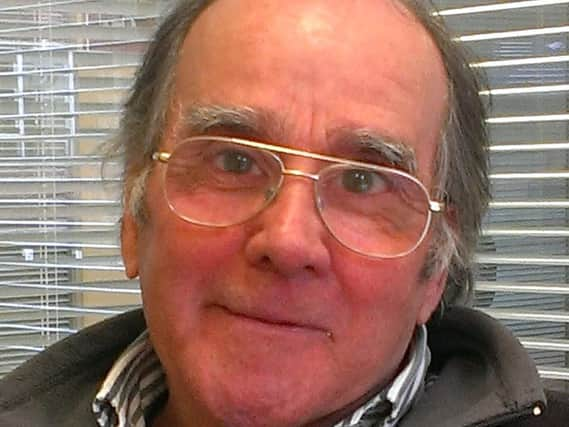Festival of Chichester: losing our songbirds...


Our songbird population is declining alarmingly – a fact he will discuss at two separate talks for the Festival of Chichester.
David’s Country Chronicles will be in The Studio, New Park Community Centre, New Park Road, Chichester on Thursday, June 21 at 7.30pm. He will repeat the talk at the same venue on Thursday, July 12 at 7.30pm.
Advertisement
Hide AdAdvertisement
Hide AdDavid’s theme will be the decline of songbirds, the recorded habits of raptors, flora and fauna, rustic buildings, follies and local characters, with a selection of illustrations from his fine-art paintings and vivid photographs.
The substance of the talk stems from his popular book A Sussex Wayfarer’s Nature Notes.
It was in May 2001 that David first noticed that the dawn chorus did not have the power and intensity that it had had before.
“The years before I had always loved to listen to the dawn chorus and it was always quite strong and powerful, but then suddenly it just wasn’t like it used to be.
“It had declined noticeably.
Advertisement
Hide AdAdvertisement
Hide Ad“From then onwards I kept an eye on it, the year after afterwards and then the year after that, and I have never heard it sound the same again, and it is still not now. It is not nearly as strong and as beautiful as it used to be.
“I also started noticing in the countryside that you might see one skylark and if you were lucky you might see one peewit.
“They have declined so much. I was talking to one of the farmers locally and he was saying that you hardly ever see any peewits around here any more.
“There used to be an awful lot of them.”
A couple of years ago, David chanced on a book which was talking about the impact of sparrow hawks on the songbird population in Devon.
Advertisement
Hide AdAdvertisement
Hide Ad“People had talked about the impact of different farming methods and other reasons, and I do agree that there has to be a reason, that something is playing havoc with our songbirds.”
David then chanced on another book from the 1930s in which sparrow hawks were described as nuisances, taking every other bird up to and exceeding their own weight. David delved into it further.
“People love these beautiful birds, these sparrow hawks, and I love to see them, such beautiful birds, the hawks, the buzzards, the kestrels. And a lot of people are worried about them being persecuted.
“But I don’t want to do that at all. I am just pointing out what I have observed and what I have read and what I have found out.
Advertisement
Hide AdAdvertisement
Hide Ad“And it gets worse from year to year. Every year we are seeing fewer and fewer and fewer songbirds.
“It is all very well putting up a few nesting boxes and saying everything is fine. People who have lived in the countryside for 50 or 60 years will tell you exactly what they are seeing.
“The beauty of the country is also in the sound of the country.
“It is so rewarding, and it gives you a wonderful feeling of tranquillity and peace to be sitting in the woods or in a field listening to the beauty of the birdsong.
“But you just don’t get it so much anymore.
Advertisement
Hide AdAdvertisement
Hide Ad“I would not like to say what should be done. It is for me to think what should be done about it.
“It needs greater minds and greater powers than mine to assess what is happening and how something can be done about it in the right way.
“But I do think these birds are responsible in a big way. If you think of the way these sparrow hawks have multiplied, it makes a big difference, and they are eating the songbirds.
“They are not coming down and eating cheese sandwiches! They are eating these beautiful songbirds!”
Tickets £5. Disabled access.
Advertisement
Hide AdAdvertisement
Hide Ad